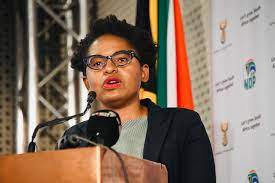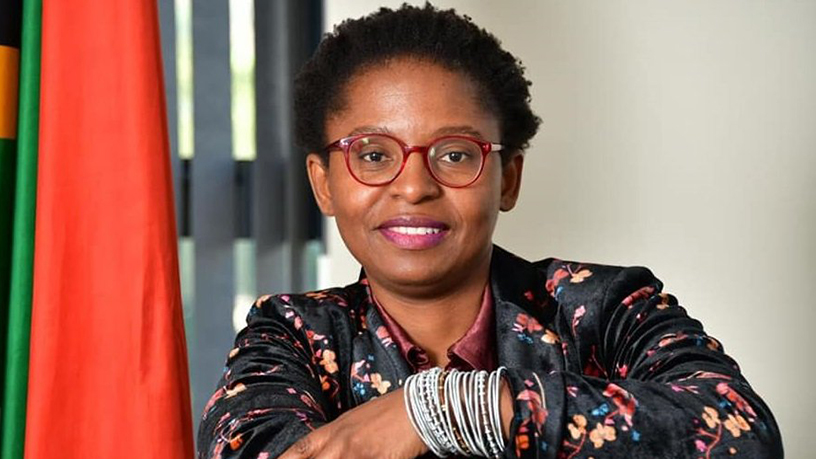Sentech to Launch Streaming Platform to Rival SABC+
There are reports that SABC’s biggest client by far, Sentech, is launching a streaming platform to rival SABC+. The state-owned broadcast signal distributor has already set plans to rival the public broadcaster in streaming services.
While the SABC has been without a board for several months, Sentech has been making plans to launch what appears will be a competitor to SABC+, the streaming service launched by the public broadcaster late last year when it took over management and operation of Telkom One, a joint venture it had with Telkom.

News of Sentech’s plans to offer a so-called OTT service (over the top — industry jargon for streaming) emerged in parliament on Wednesday when communications minister Khumbudzo Ntshavheni said the company will “soon launch a homegrown OTT platform that will be anchored by Nemisa but which will be available to other content producers”. Nemisa is a state-owned non-profit in Ntshavheni’s portfolio that focuses on technology education, including in multimedia production.
Read also Nigerian Medtech Startup Clinify Raises $1.5M To Digitize African Medical Records
The launch plans come amid growing tension between the SABC and Sentech over signal carriage fees
“Our goal is to eventually make this platform the home for quality films, documentaries and children’s stories, in addition to SABC+,” the minister told MPs.
Sentech plans to launch the OTT platform in the first quarter of the 2024 financial year – that’s sometime between March and May this calendar year. A Sentech spokeswoman was on leave and not immediately available to comment further on the platform and its planned content offerings.
The launch plans come amid growing tension between the SABC and Sentech over the signal carriage fees the latter charges the former to distribute its terrestrial channels to South African audiences.
Read also Kenyan Fintech Startup Power Financial Wellness Raises $3M In Seed Funding Round
The SABC and its commercial free-to-air rival e.tv last year accused the broadcasting signal distributor of excessive pricing and anticompetitive behaviour.
Their broadsides against the state-owned enterprise were included in formal submissions to communications regulator Icasa, in which they called for urgent regulatory interventions in the signal distribution market to deal with alleged monopolistic abuses by Sentech.
The submissions form part of a market inquiry by Icasa into the signal distribution services market. Sentech has asked that the regulator’s discussion document be withdrawn because, among other reasons, updated legislation to govern audiovisual services is in development and Icasa’s investigations shouldn’t pre-empt these potential policy changes.
E.tv parent eMedia Investments said in its submission to Icasa that it is “deeply concerned at the fact that the issues relating to significant market power in relation to signal distribution services have been ignored for decades”.
“This is despite pleas by the broadcasters that the market needed urgent regulation. Indeed, Icasa recognised as far back as 2010 that there was an urgent need to regulate the market due to Sentech’s undisputed dominance,” eMedia said. “Yet Icasa has taken no steps in this regard… All this has been to the detriment of broadcasters and caused them financial harm.”
The SABC also strongly criticised Sentech’s tariffs and behaviour, describing them as “not appropriate or correct”. It said its concerns led to the creation of a “chart of accounts project” at the public broadcaster to determine the fairness or otherwise of Sentech’s fees.
“The details of the various costs per service and per transmission site have been requested from Sentech with the objective of understanding how the structure of the cost for each service was derived. Sentech has not been cooperative in this regard for the past two years,” the public broadcaster alleged in its submission.
Read also Kenyan Fintech Startup Power Financial Wellness Raises $3M In Seed Funding Round
The SABC also filed a complaint against Sentech at the Competition Commission in 2021, in which it accused the signal distributor of “unfair and anticompetitive pricing”.
Kelechi Deca

Kelechi Deca has over two decades of media experience, he has traveled to over 77 countries reporting on multilateral development institutions, international business, trade, travels, culture, and diplomacy. He is also a petrol head with in-depth knowledge of automobiles and the auto industry





